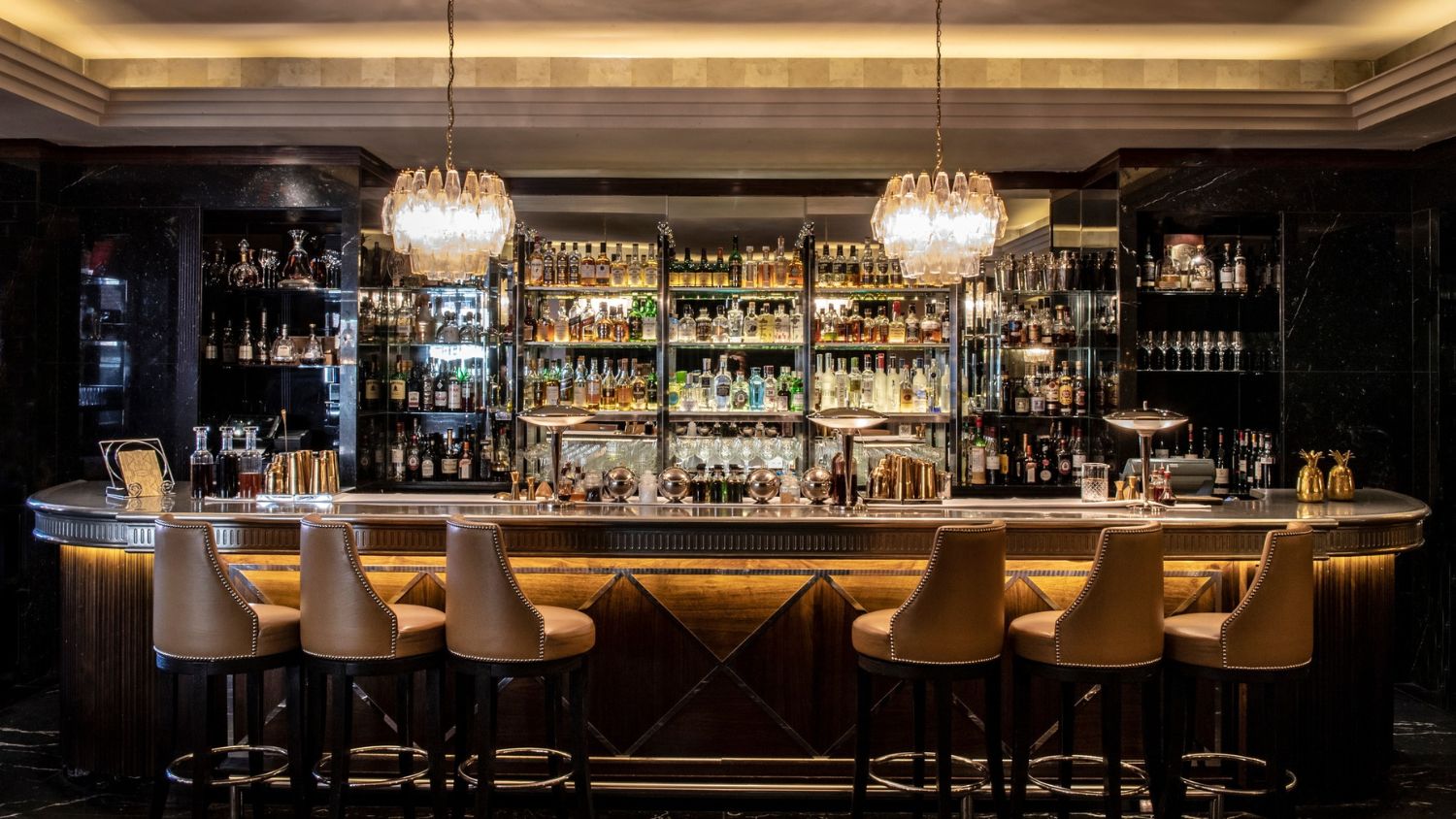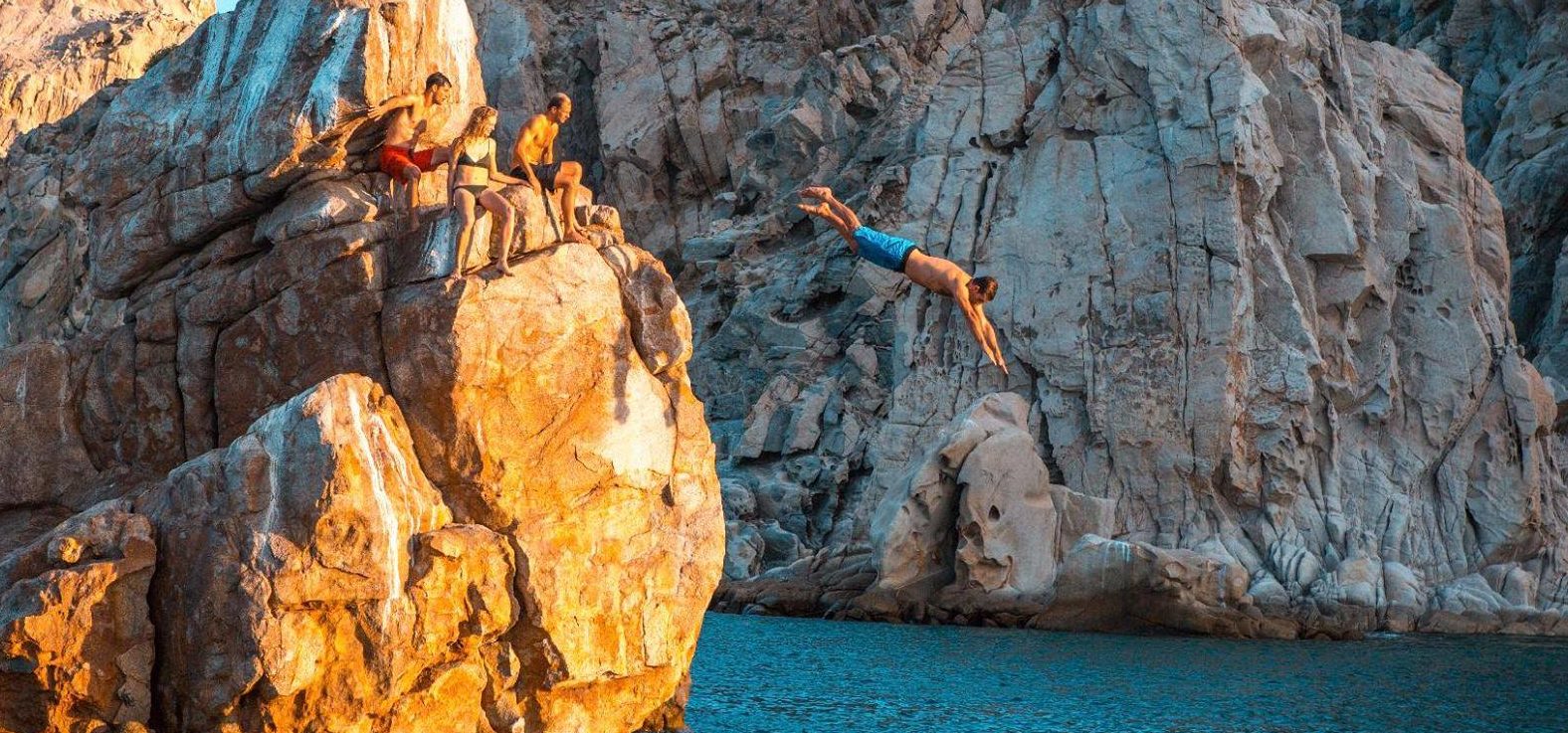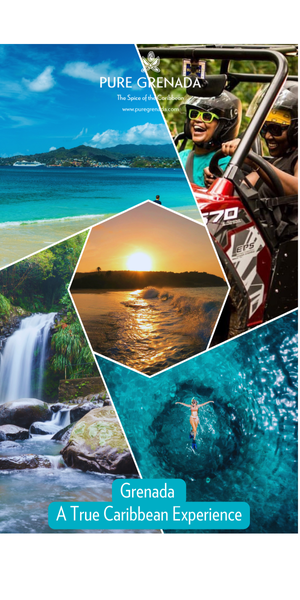Ireland Two ways: Eating in Cork and drinking in Dublin are the right recipe for finding merriment on the Emerald Isle.
EATING CORK
A taxi driver with the gift of the gab who picks me up at the Cork train station shares a suggestion in his distinctive Irish brogue: skip a visit to the Blarney Stone and the need to bend over backwards to give it a kiss – a legend he calls a “bunch of nonsense” – and instead discover the mouthwatering magic of the city’s celebrated food scene. Twist my arm.
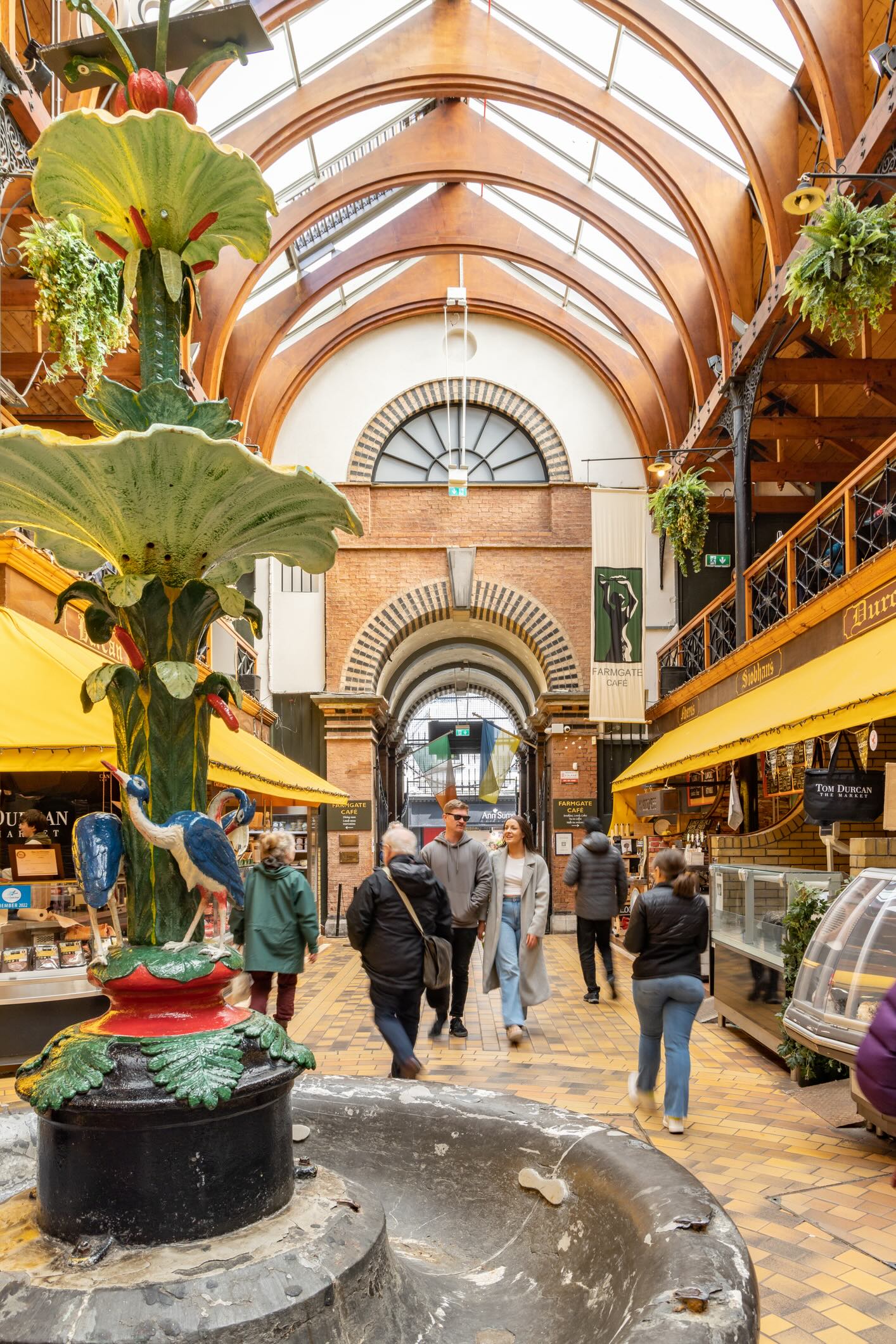
Cork’s iconic English Market, trading since 1788, is one of Europe’s oldest and finest covered markets, having endured famine, flood, war, fires, and recessions. Photo: Hilda Weges
After a quick culinary crash course in everything Cork has to offer, my first stop is to the English Market, established 1788. I work up an appetite strolling the stalls brimming with fish, meat, produce, flowers and other earthly delights. I eavesdrop on the locals, known for their irreverent sense of humour, causing me to arrive too late for lunch at Farmgate Café, located above the market and serving favourites sourced from ingredients sold here. So instead of sampling traditional Irish fare, like drisheen, a black pudding made with sheep’s blood, milk and spices, I head to my hotel, The River Lee, part of The Doyle Collection.
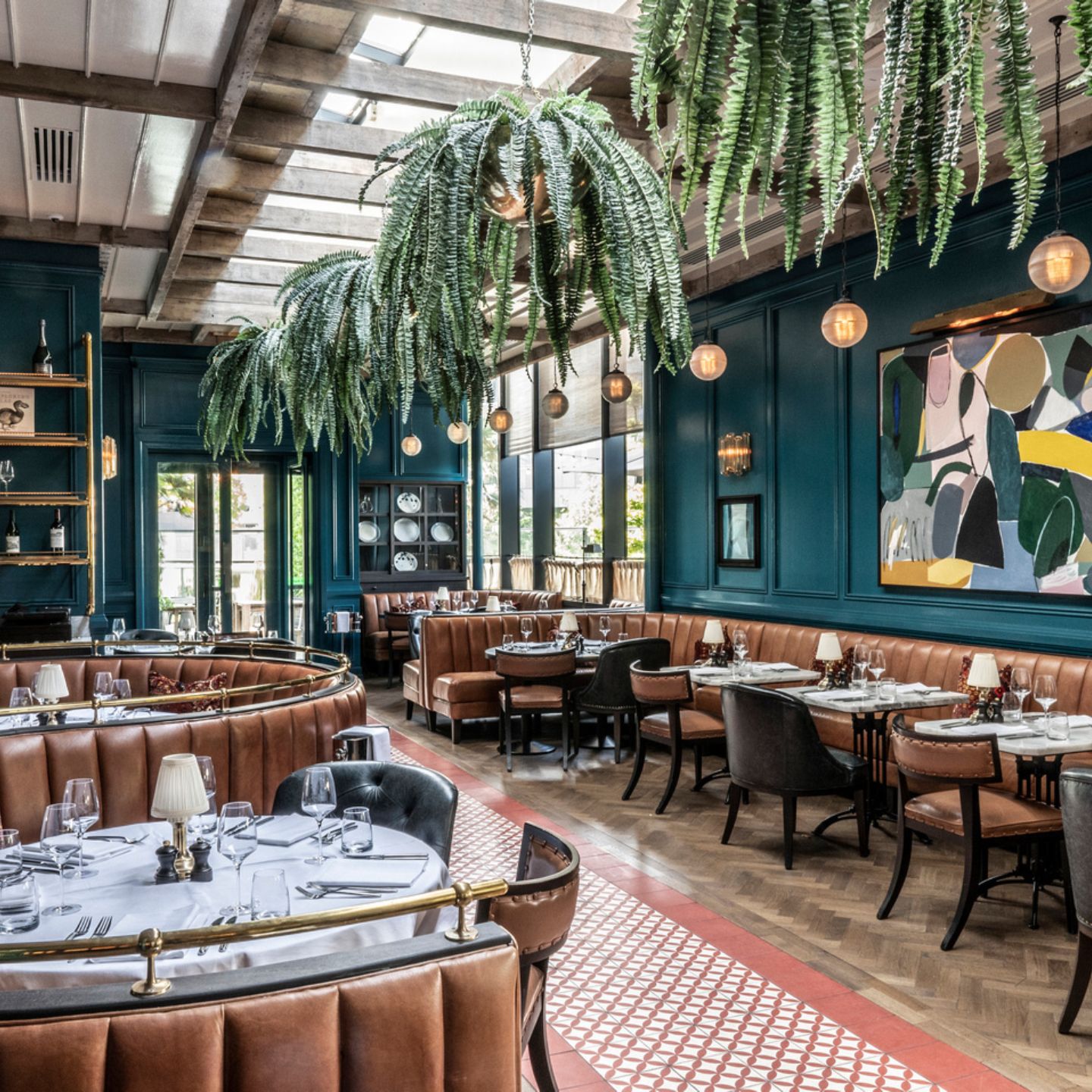
The Grill Room. Photo: @theriverlee
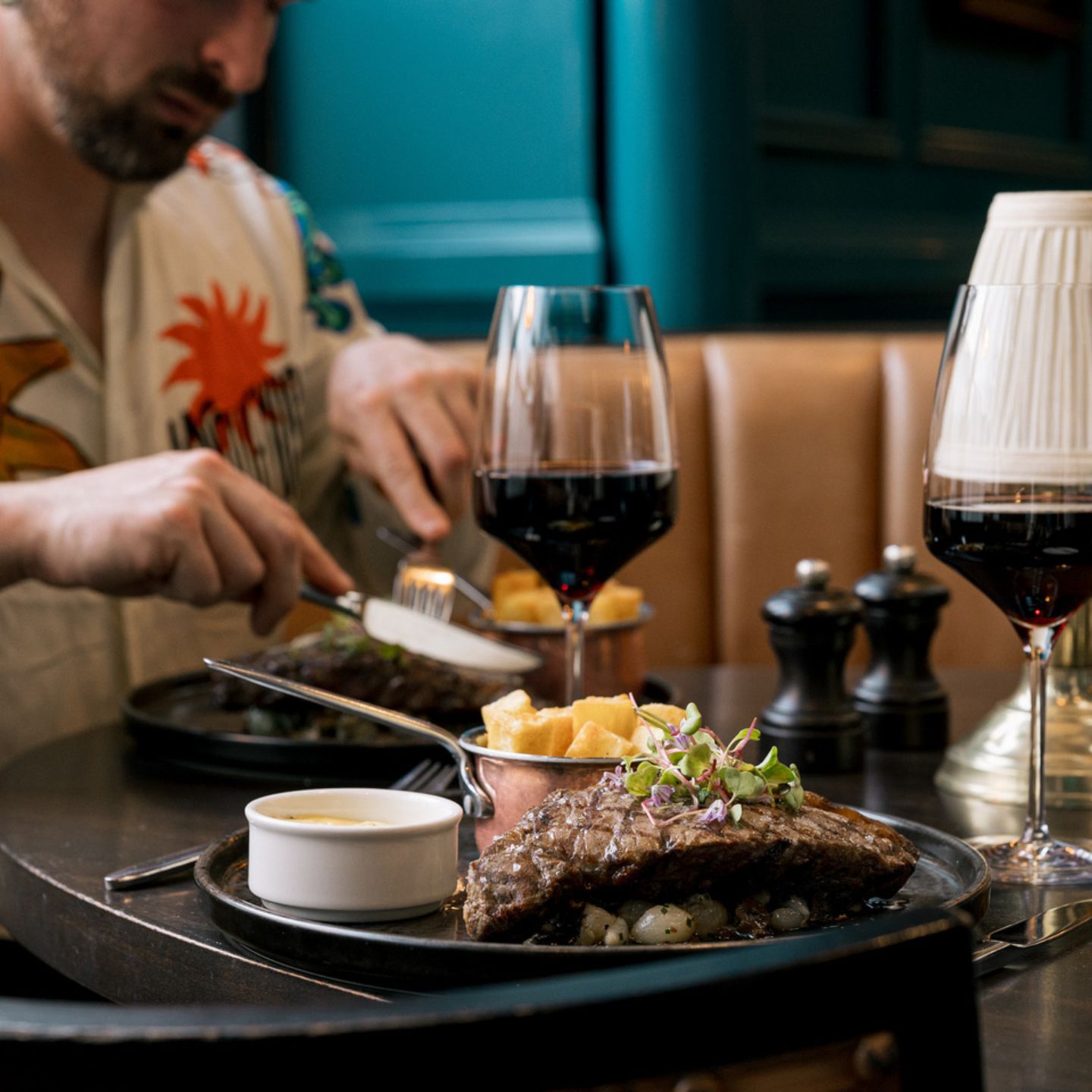
Photo: @theriverlee
The property’s The Grill Room, an airy, elegant restaurant with lacquered teal walls that wouldn’t be out of place in Paris, also uses many of the food producers from the market, including Ballycotton Seafood and the renowned butcher Quigley Meats. Cozied up in a corner booth, I go completely carnivore. Crispy pork belly, served with a zesty side of bánh mi salad, and an Angus ribeye steak, with an aromatic Jameson peppercorn sauce, arrive piping hot to the table. I promptly and joyfully devour both. Later, drifting off into a food coma in my suite overlooking the City of Bridges and the hotel’s eponymous River Lee, I fully understand why Cork is considered the Food Capital of Ireland.
DRINKING DUBLIN
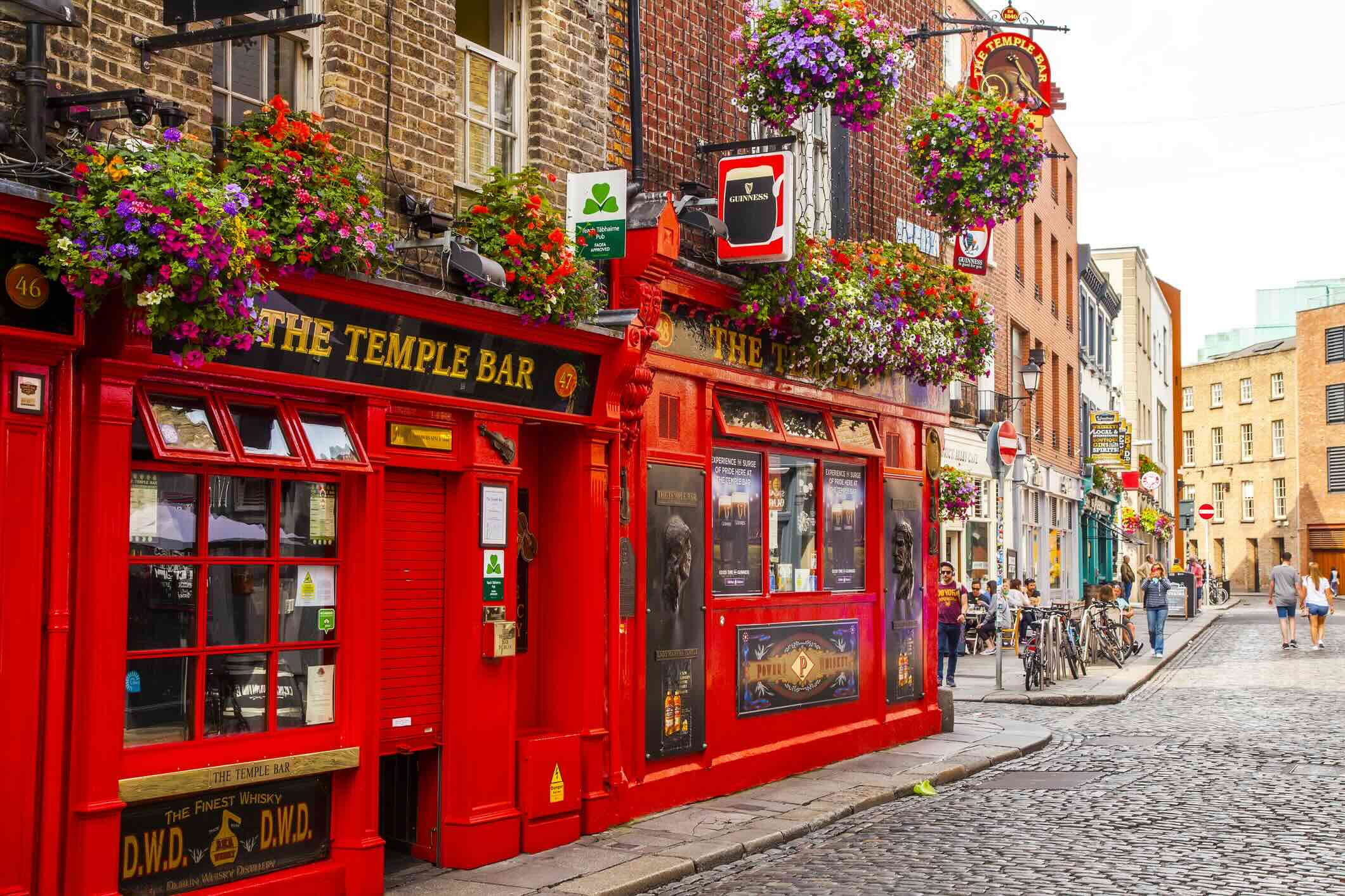
The Temple Bar in Dublin is one of Ireland’s most iconic and vibrant cultural landmarks, located in the heart of Dublin’s old town. Photo: @arcady_31
A spirited journey to Dublin is easy since it’s home to everything from centuries-old pubs to sleek new cocktail lounges. Anything could be a good reason to indulge in a drink in the Irish capital. My excuse, perhaps flimsy, is to try a Guinness in the city where it originated. I have a choice of popular spots, ranging from The Temple Bar, with its whiskeys galore, to The Long Hall, beloved by Dubliners and tourists alike. I opt to drink in the lively atmosphere at McDaids on Harry Street. Operating since the 18th century, the pub’s soaring ceilings, stained glass and dark wood are testament to its past lives as a morgue and Moravian chapel. But what fascinates me more is the watering hole’s claim to fame as a former haunt of literary Irish giants such as James Joyce, who is said to have drawn inspiration from the pub for the opening of Grace, his short story about a reformed heavy drinker.
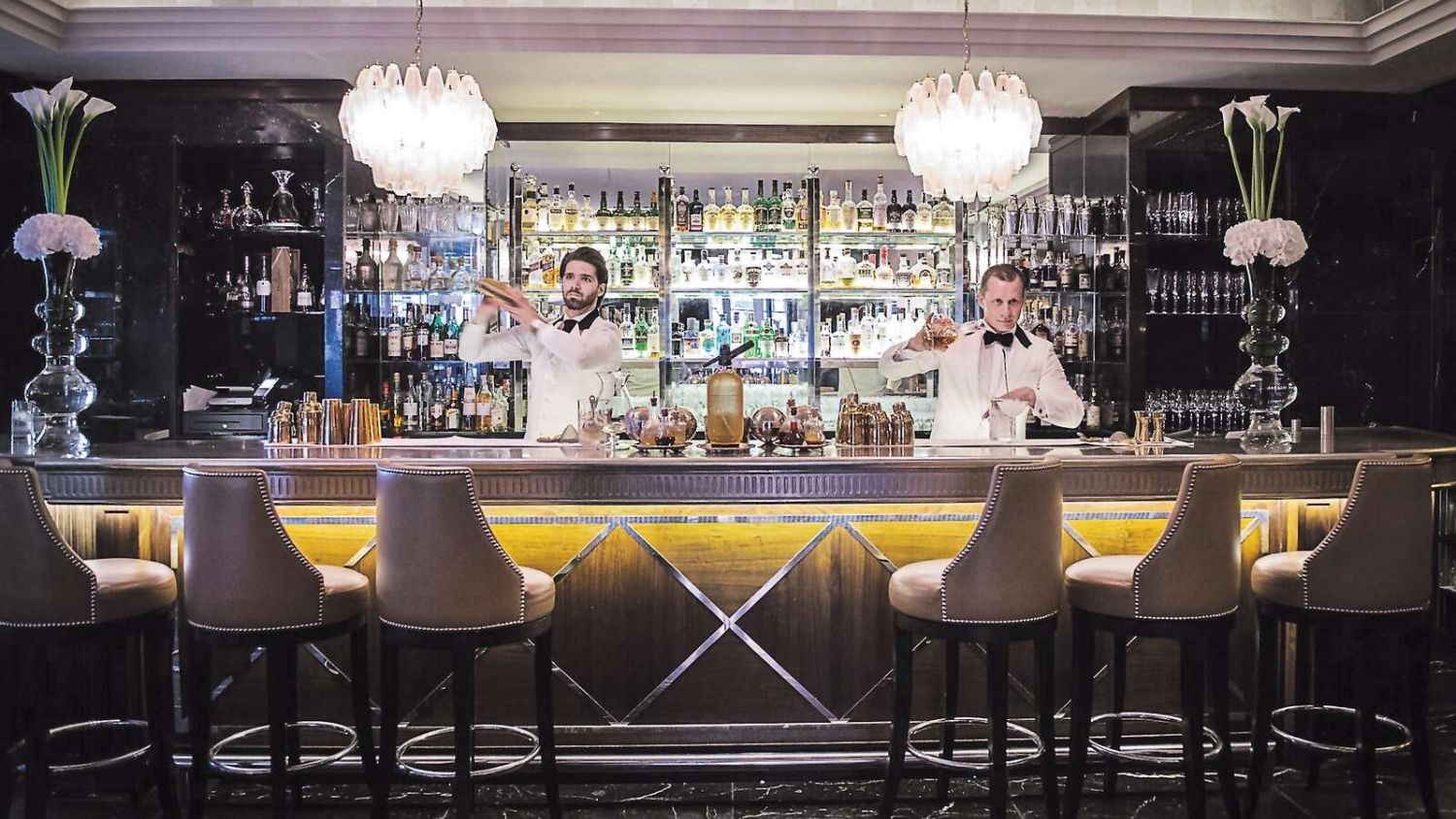
The Sidecar Bar at The Westbury Hotel in Dublin combines 1930s glamour with an Art Deco design. Famous for its martini trolley and luxurious atmosphere, it has won accolades such as Best Hotel Bar (2018) and Best Cocktail Bar (2019).
The Irish are famously adept at the art of casual bar conversation. I learn from a former Guinness employee that a perfectly poured pint of the stout begins in a pub’s cellar, where the keg can be kept at a controlled temperature. And from the lower location, the beer snakes through a long tube (or python) to the tap above, where it’s delivered with just the right pressure.
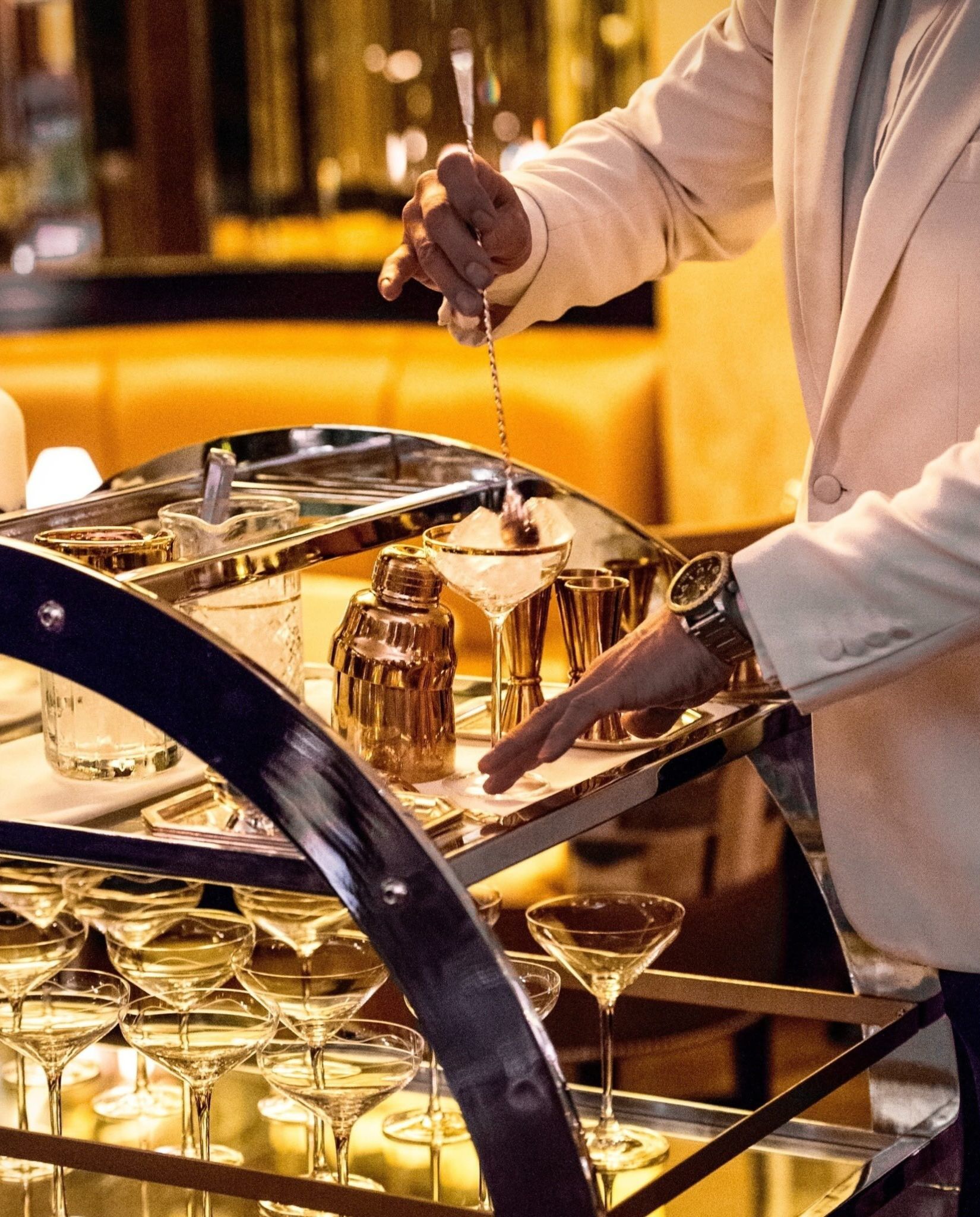
The table-side martini trolley at The Sidecar Bar in Dublin brings a touch of old-school glamour to the bar experience, reminiscent of the 1920s and 1930s when such personalized service was popular in upscale bars.
True or not, my Guinness hits the spot, and fuels me on my quick walk around the corner, to the five-star The Westbury and its Art Deco-inspired cocktail lounge, The Sidecar – a three-tiered martini cart – the only in Ireland – replaces pub kegs. The cocktail menu lists 16 drinks, many a twist on a classic. Each features a name that pays homage to a bygone era, from the Gold Digger, a sidecar made with cognac, yellow chartreuse, honey, lemon and ginger ale, to my selection, a clarified piña colada with hints of vanilla and pimento, called the Voguette.
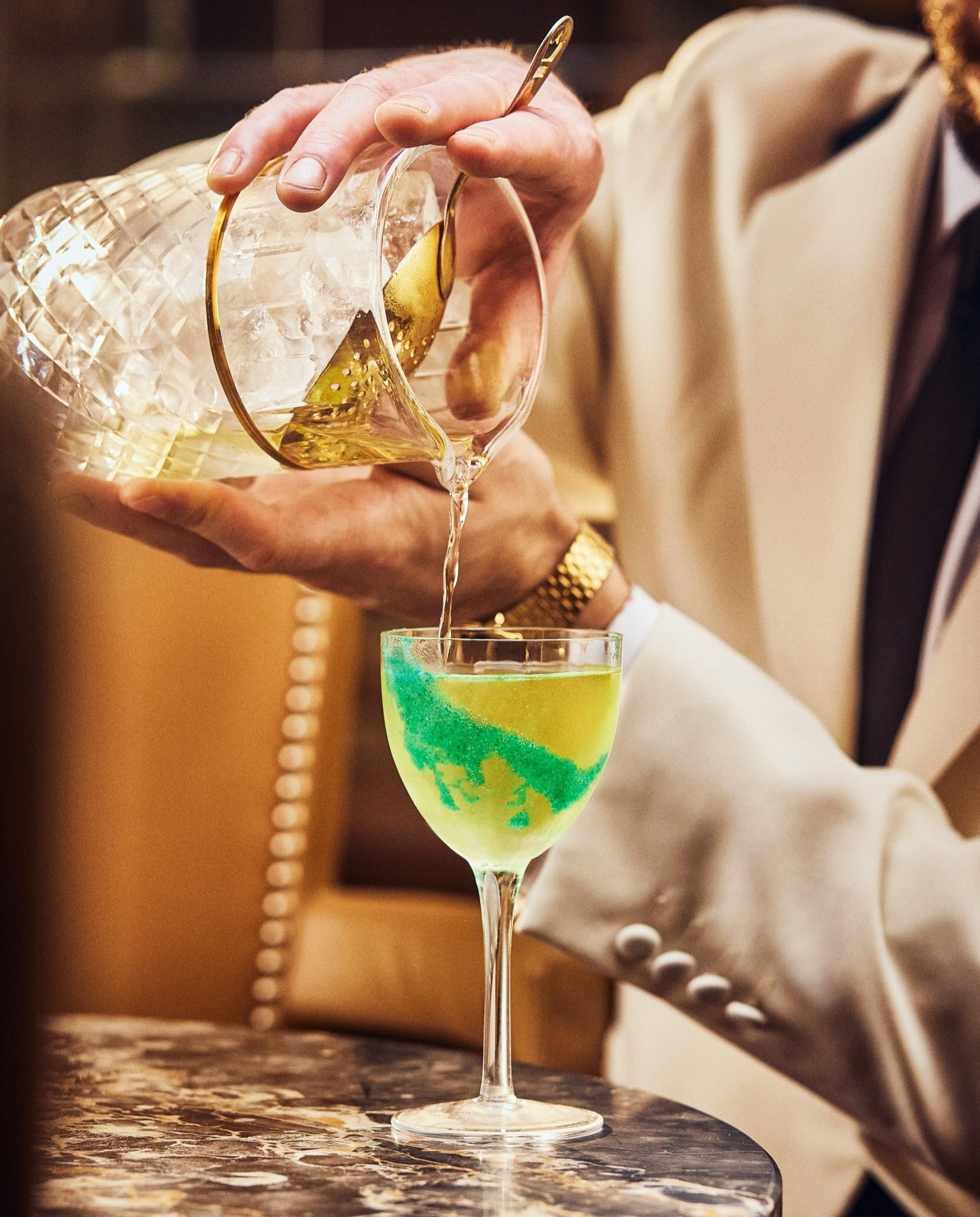
The Ace of Hearts cocktail, made with Malfy gin, Martini Blanco, suze, plum bitters and apple & cinnamon cordial.
The Sidecar’s manager, Oisin Kelly, serves me and other patrons a champagne amuse-bouche in a custom-made coup while each craft cocktail is conjured up behind the bar. Creating the menu, he explains, was a yearlong exercise in experimenting with a complex range of elements to find the precisely right flavour profiles. Sláinte to a job well done!

